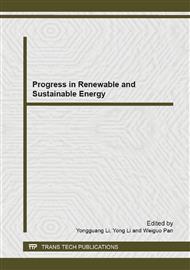p.1181
p.1186
p.1190
p.1194
p.1198
p.1204
p.1210
p.1215
p.1220
Indirect Evaporative Cooling – An Energy Efficient Way for Air Conditioning
Abstract:
Invention and the widely use of air conditioning has improved people’s working and living conditions. However, it also consumes significant amount of energy, accounting for over 40% of total energy used in the buildings. Indirect evaporative cooling (IEC) is a relatively new kind of air conditioning mechanism developed. It is not only uses less energy comparing with traditional air conditioning, but also overcomes the weaknesses of a direct evaporative cooling (DEC) system. The weaknesses of DEC include humidifying the supply air and minimum temperature of supply air is not lower than wet bulb temperature.
Info:
Periodical:
Pages:
1198-1203
Citation:
Online since:
December 2012
Authors:
Price:
Сopyright:
© 2013 Trans Tech Publications Ltd. All Rights Reserved
Share:
Citation:


